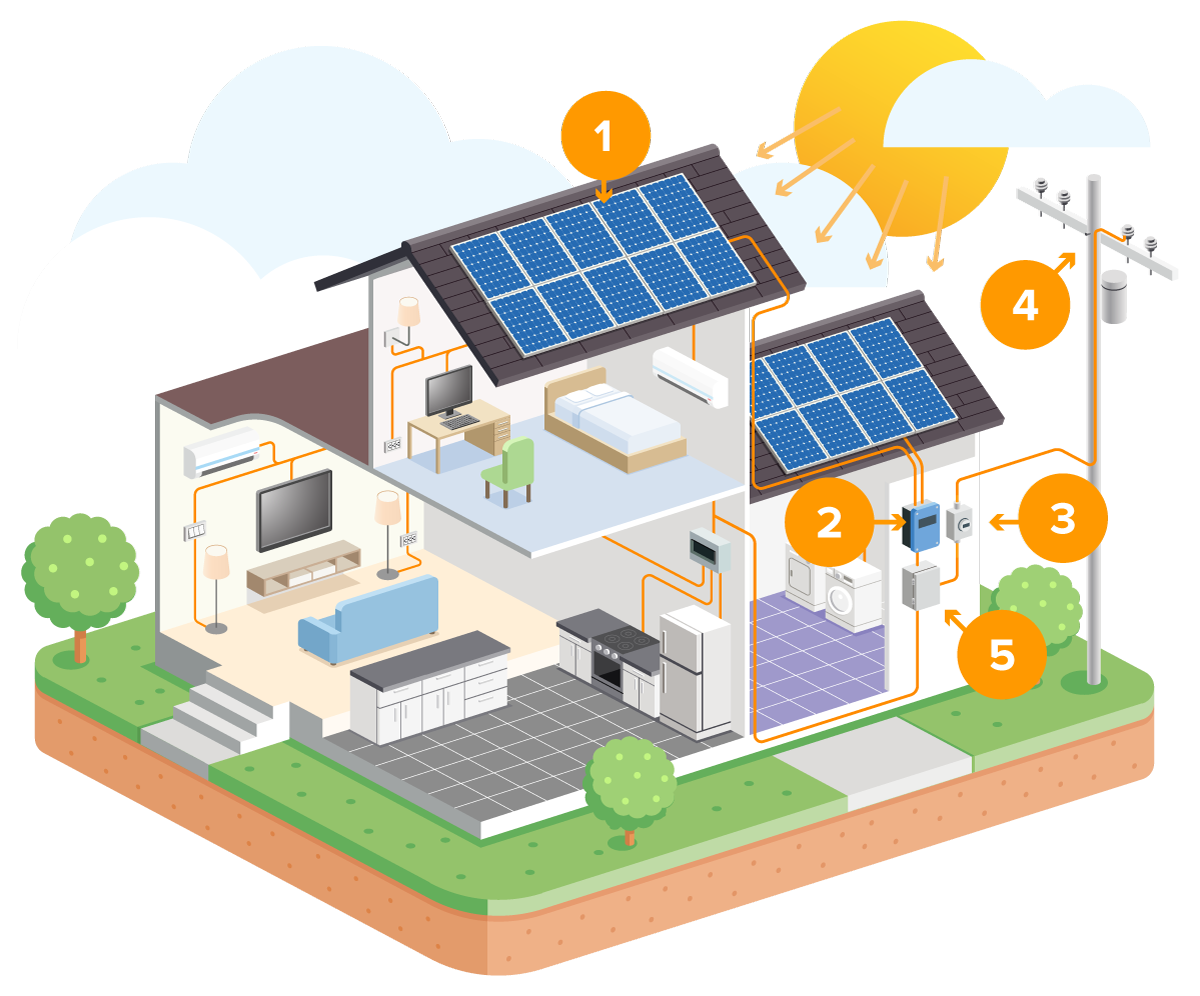What Are Solar Meters?
Also known as bi-directional devices, solar meters are purposely for gauging the energy your household sends out to the grid. It’s critical to upgrade to a smart meter if you happen to have an old-fashioned accumulation meter.
Once you have a smart meter set up, the next thing you need to ensure is to have it configured to gauge the power you transport. A properly installed solar power meter allows homeowners to acquire credits with a feed-in tariff to minimize their electricity expenses significantly.

Picture is from: greenelectric.ie
How Does a Solar Power Meter Execute Its Function?
Conventional power meters have limited functions as they could only measure the energy from the grid into your home. What differentiates them from solar power meters is that the latter can also gauge the power that your household transports to the grid.
Typically, solar power systems acquire the highest power generation in afternoons. This is the period when consumers are out for work and when appliances or lights are not in use. On the other hand, home electricity consumption is usually higher in the mornings and night time.
Primarily, solar meters are a better option because they can determine the highs and lows in a homeowner’s daily power generation and consumption.
With bi-directional devices like solar meters, excess power is sent into the electric grid when the solar system generates above and beyond what’s required.
The “in and out” between the solar PV system and the grid can guarantee that the excess power generation will still be consumed and ward off electricity shortage. Substantially, with solar energy meters, the excess power generated can account for when the power generated isn’t sufficient.
When your solar PV system generates more power than consumed for a month, you can acquire credits based on the amount of power rendered to the grid.
It’s crucial to purchase energy from the electricity company if your solar PV system produces less power than consumed in a specific month. In such cases, consumers would need to pay for the energy they consume, minus any excess energy the solar PV system produces.
Final Thoughts
When you decide to go solar, having a solar meter installed at home can tremendously help you minimize your expenses on electricity. However, keep in mind that it’s vital to learn how to read a solar meter to monitor your electricity usage.
As stated above, knowing how to read solar inverter meter is advantageous. These are the advantages you can enjoy with solar meters:
1. You can save money if more power is generated than used because the electricity firm pays for the energy surplus.
2. Solar meters indicate precise and real-time power usage, so you become more mindful of your solar energy consumption.
From https://avasolar.com/read-a-solar-meter/
Contact
Building 2, No.211, Yanbei Rd, Jiaxing, Zhejiang, China
+86 13706586937(Overseas)
Emily.Zhang@Rayfull.com.cn
15068363717(Chinese Market)
Tyrone.Gu@Rayfull.com.cn
 +86 0573 86668515
+86 0573 86668515
Product
